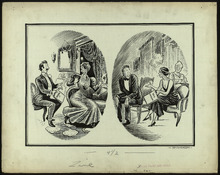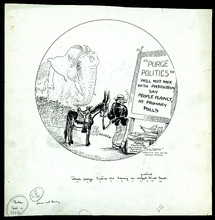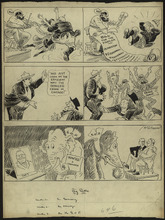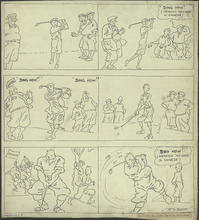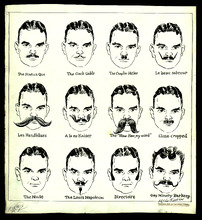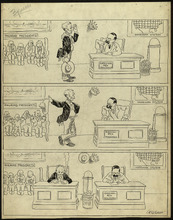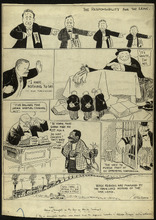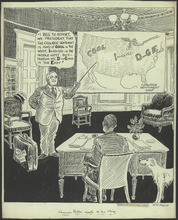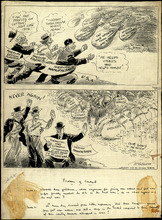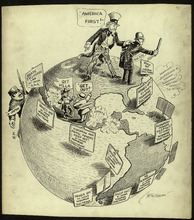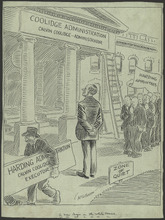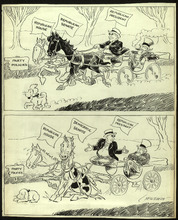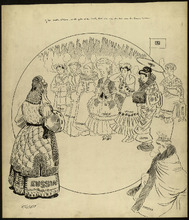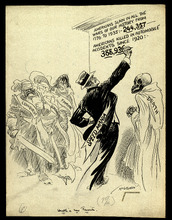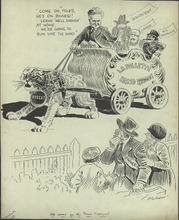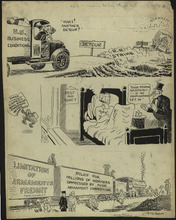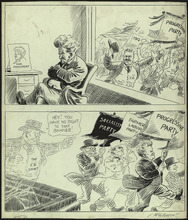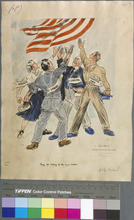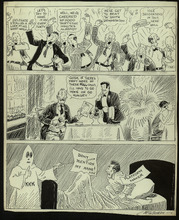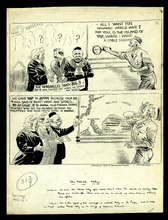Editorial cartoon depicting two panels set at different presidential elections. In the top panel, Robert La Follette sulks inside while Theodore Roosevelt marches outside in a 1912 Progressive Party parade. In the bottom panel, the spirit of Theodore Roosevelt accuses La Follette of having no right to carry the Progressive Party banner in a later parade, also with representatives from the Socialist Party and the Farmer-Labor Party. In 1912, La Follette was hoping to be the presidential nomination for the progressive wing of the Republicans, but his supporters abandoned him in favor of Theodore Roosevelt when the former president announced his return to politics, and Roosevelt became the 1912 presidential candidate for the Progressive Party instead; La Follette supported Wilson in the election. When the Progressive Party re-formed, after World War 1, they chose La Follette as their presidential candidate at a convention in Ohio in July of 1924; the Socialist Party and Farmer-Labor Party joined La Follette's progressive platform.
